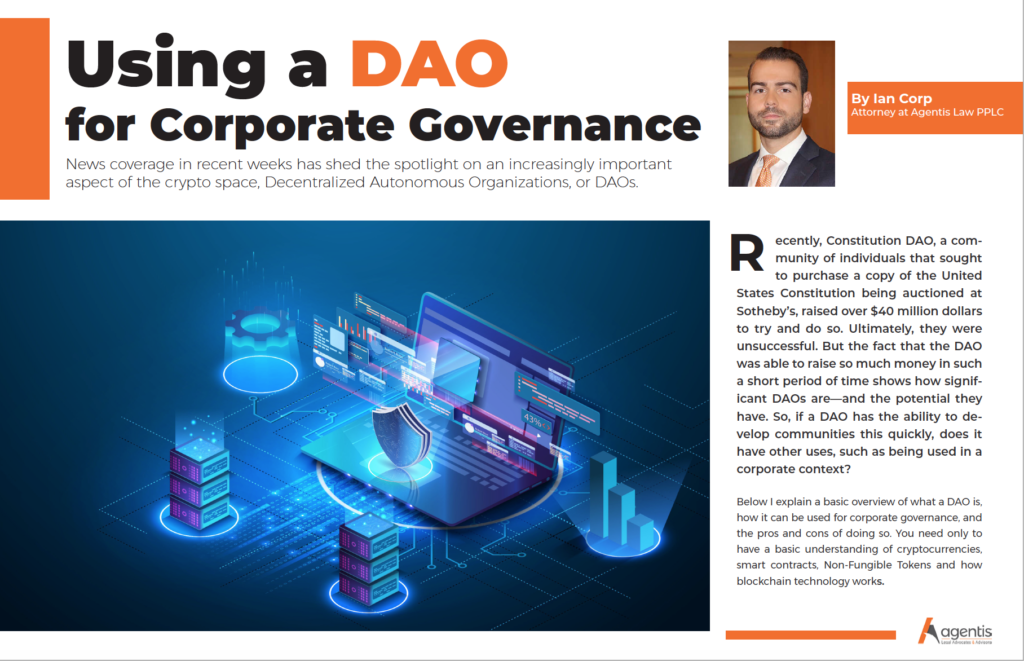News coverage in recent weeks has shed the spotlight on an increasingly important aspect of the crypto space, Decentralized Autonomous Organizations, or DAOs.
What is a DAO?
A DAO is an entity that operates on the blockchain. It can be many things, but at its core, a DAO is a collective of interests or individuals that come together to achieve their common goals. For example, a DAO could be a community of persons that want to raise money for charity. A DAO could be a collection of entities that want to work together to buy a particular item (e.g., Constitution DAO, Links DAO, etc.). One DAO can merge with another DAO. Think of them as corporate entities that operate on the blockchain. Like current companies, a DAO is governed by its contract(s). But unlike current companies, a DAO operates based on the written software programming within their smart contract(s) and the community that makes up the DAO.
Publicly Traded Companies Are Similar to DAOs, but with Less Flexibility
To help understand how a DAO functions, think of a publicly-traded company—let’s call it XYZ. XYZ’s operations are subject to its bylaws and articles of incorporation. A DAO is governed by the blockchain that it operates on, and the written code built into the smart contracts of the DAO. While XYZ must be run by a board of directors, a DAO can be structured in several ways. A DAO’s members could elect a committee like a board of directors that can decide on the DAO’s objectives and future direction. But a DAO can bypass having a board and have its members vote on how its directives are achieved. This is like an annual shareholder meeting. Ultimately, a DAO can be structured in unlimited ways.
How does a DAO Sustain Itself?
Transacting on the blockchain isn’t free. Each time a DAO performs an operation on the blockchain, it pays a fee for doing so. One way a DAO can raise funds is by issuing cryptocurrency tokens—like a company that raises money by issuing stock. Purchasing tokens for a DAO is like purchasing stock with voting rights. Another way a DAO raises funds is through outside investment or donations from stakeholders who wish to see the DAO prosper. But because DAOs are unrestricted in their structure, unlike current corporate entities, fundraising for a DAO can be as expansive as its members’ imagination.
Pros and Cons of Using a DAO for Corporate Governance
A positive of using a DAO is that they operate on a decentralized model. A DAO is not located nor subject to attack in a single location. So, DAOs are much less likely to be hacked. Another positive is that DAOs can be structured in as many ways as possible. The only limit is the imagination of its community. But decentralization is not perfect. One con a of DAO is presenting a voting decision to thousands of people with varying shares of voting rights. That might stall the decision-making process. Another grey area to consider is that DAOs are self-regulated and are not subject to outside regulation, if the DAO consists of primarily bad actors that have ulterior motives, then it would be like an organized crime operation—with protective mechanisms in place to prevent them from being dismantled.
Why Bother with DAOs?
Overall, the use case for DAOs is still being developed. For now, DAOs have ample ability to create and foster communities and facilitate the achievement of objectives. As for the future, we’ll have to wait and see.

